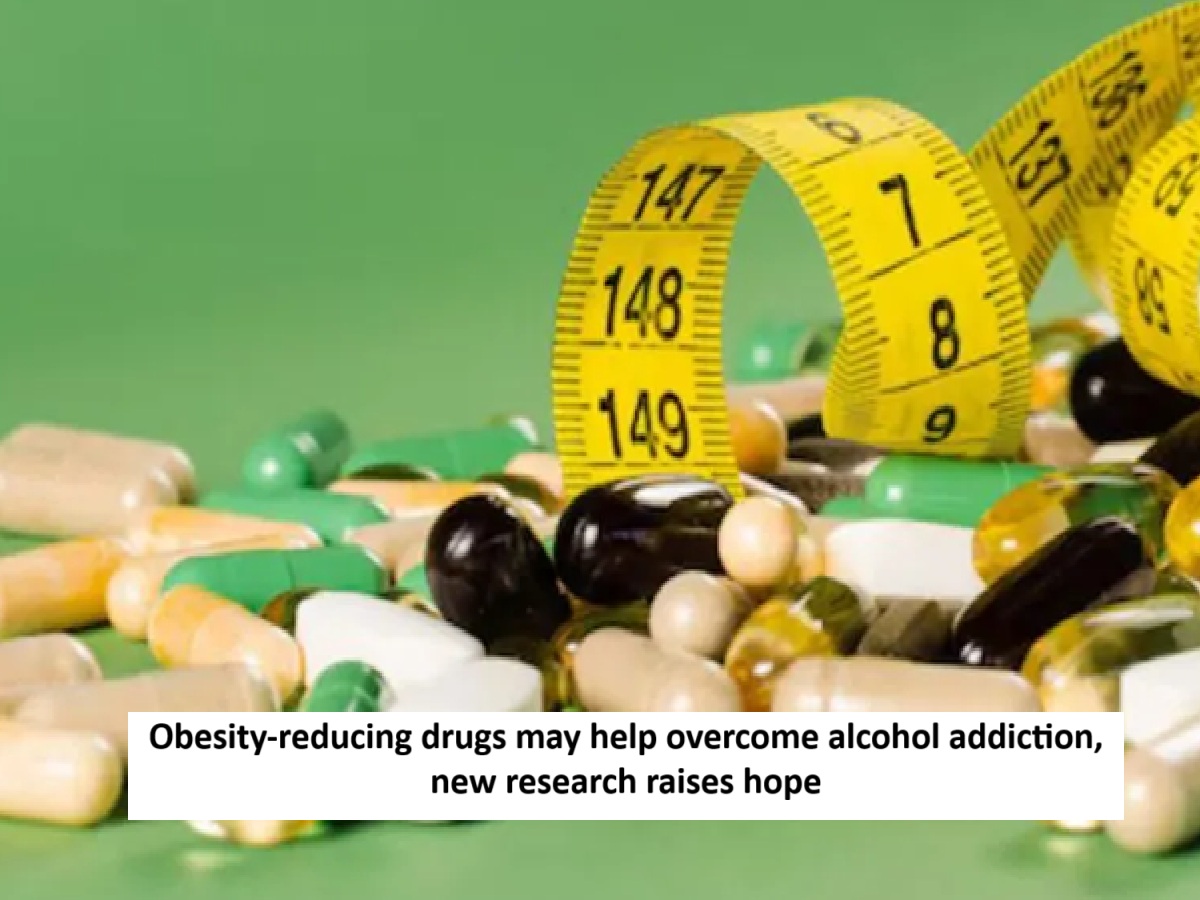
News Topical, Digital Desk : Alcoholics often become addicted. Once addicted, it becomes difficult to break the habit. Now, a new study claims that an anti-obesity drug can help in overcoming alcohol addiction. This drug works by reaching the brain and reducing the urge to drink, thereby helping people reduce their alcohol consumption. According to a study, popular drugs for diabetes management and weight loss, such as Ozempic and Wegovy, may also be effective in reducing alcohol consumption. The study, conducted by researchers at Virginia Tech in the US, found that GLP-1 slows down the rate at which alcohol enters the bloodstream, thereby reducing its effects on the brain.
Weight loss drugs could be a 'game changer'
Alcohol addiction is a serious problem, causing 2.6 million deaths worldwide annually. The disorder is typically treated with cognitive behavioral therapy, counseling, and medications. While these measures provide temporary relief, 70% of patients return to drinking within the first year, making a permanent solution difficult. For these individuals, anti-obesity medications may provide lasting relief. Alex DiFeliceantonio, assistant professor at Virginia Tech's Fralin Biomedical Research Institute, said that those who drink alcohol know there's a difference between drinking a glass of wine and a shot of whiskey. A standard dose of either contains 0.6 ounces of alcohol, but a shot increases blood alcohol levels more rapidly. The difference is due to the way the body absorbs alcohol over time.
Study done on 20 people
Why is this important? Fast-acting drugs have a high abuse potential, DiFeliceantonio said. They have different effects on the brain, so if glucagon-like peptide-1 (GLP-1) slows the entry of alcohol into the bloodstream, they could reduce the effects of alcohol and help people drink less.
In a pilot study of 20 participants, the team reported that despite consuming the same amount of alcohol calculated to increase breath alcohol concentrations by approximately 0.08 percent, participants taking semaglutide, tirzepatide, or liraglutide experienced a slower increase in concentrations. Participants in that group also reported feeling less intoxicated on subjective parameters.
Slow increase in blood alcohol
While other drugs to reduce alcohol consumption, such as naltrexone and acamprosate, act on the central nervous system, GLP-1 was found to be effective in suppressing cravings through a different mechanism. The study, published in the journal Scientific Reports, suggests that these drugs slow gastric emptying, which may lead to a slower increase in blood alcohol concentration. The researchers said the potential to offer new hope to individuals struggling with addiction makes this work significant.
--Advertisement--

 Share
Share



